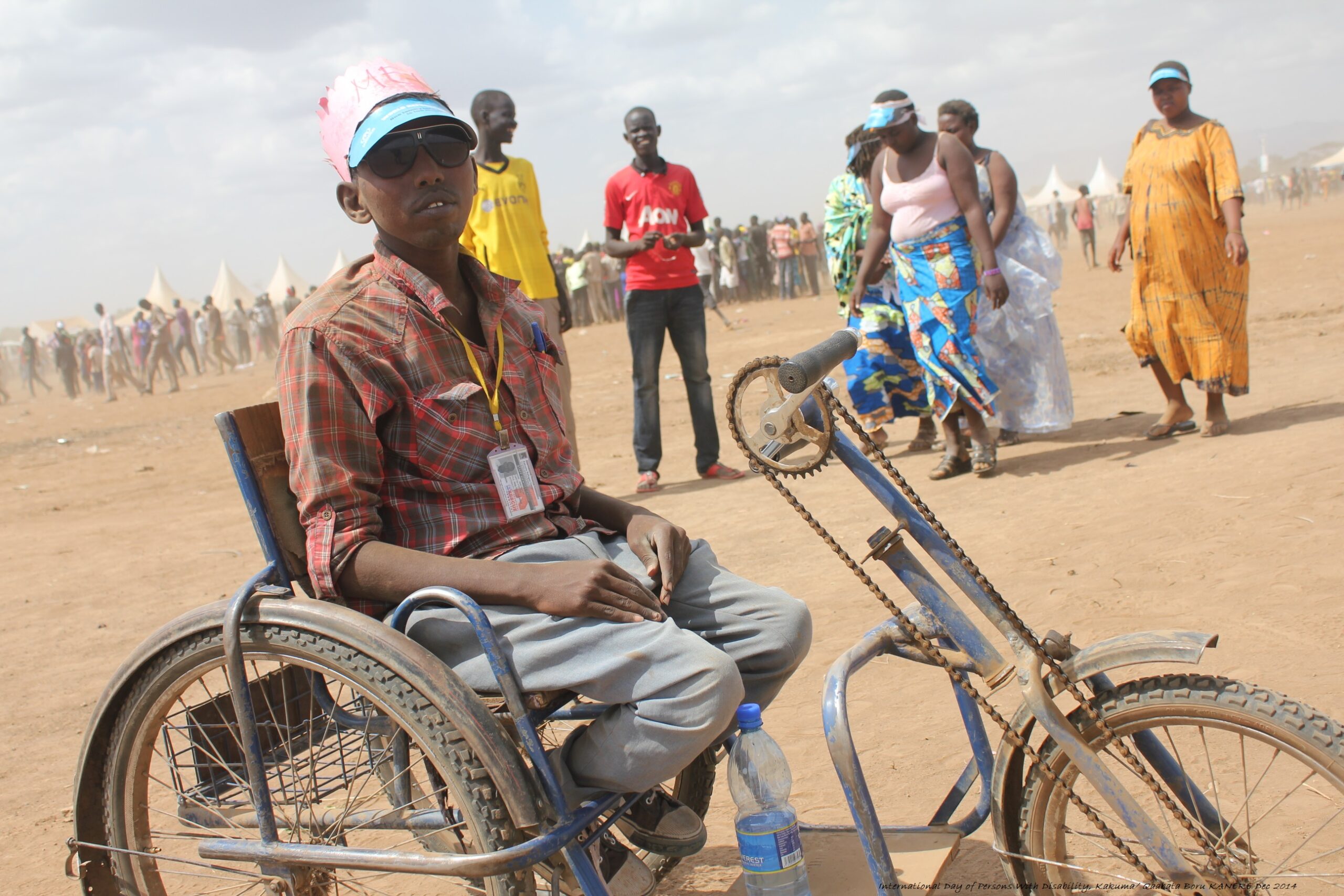In Kakuma refugee camp the International Day of Persons Living with Disability is observed, falling within the 16 Days of Activism against Gender-based Violence.
Kakuma Refugee Camp hosts hundreds of refugees with disabilities, the largest number being visual impairment, hearing difficulties and physical disability.

According to the United Nations, of the one billion disabled persons in the world, about 80 percent live in developing nations and face extreme hardship as a result of their disabilities. In spite of being the world’s largest minority group, the persons with disability and the issues of disabilities have remained largely invisible to the mainstream organizations for development.
Kakuma is no exception as the weak infrastructure cannot help realize the full and equal participation of disabled persons in an already traumatized society. “I’ve lived in Kakuma for 15 years, there was nothing practical that was meant to improve the living for disabled individuals or families, it’s hopeless survival here,” Hussein Diriyye, Somali, told KANERE.
By supporting this day, the international community offers hope for those on the fringes of society. In interview with the people living with disability, KANERE learnt that these groups of vulnerable refugees strongly felt that they are forgotten and discriminated against. “We are not seen as useful members of the communities, but we are people with brain and soul,” Abdinasir Mohammed, chairperson of the disabled group in Kakuma 1, stated.
Only 23, growing up in the oldest refugee camp in Africa, Abdinasir Mohammed said that himself and other refugees living with disabilities face widespread discrimination not only from members of the refugee communities but from the humanitarian NGOs operating in Kakuma as well.
In the camp, they live under desperately poor circumstances where they are often the most vulnerable members of the camp society. “Kakuma is not a good place for anyone to live but the disabled people have lost hopes,” says 34 years old Mukishimana, a disabled person from North Kivu, Congo.
As the 3rd December marks the 25th anniversary of the International Day of Persons Living with Disabilities, the disabled groups in this camp are waiting to find if the UN campaigns will impact them in changing their conditions for better.
Many disabled refugees in Kakuma are vulnerable, many are not able to walk because of their physical difficulties, many have hearing and speaking difficulties while others are visually impaired. “I’m living with my child, I can’t support myself even in collecting food rations, I have to beg for people to help and its monotonous to seek help for everything,” Amina, 27, a Somali widow says at camp 2.
Despite the hardship and vulnerability, there are still many disabled people who are able to go to schools in the camp while some are able to move around by themselves though on a wheelchair. “Everything is hard for disabled people but it’s a way of struggle and life to survive,” Thong Malwal, a South Sudanese, stated in an interview.
Thong lost his right leg about 16 years ago when his village in Equatorial State was bombed by military aircraft in the war between the Sudan People’s Liberation Movement (SPLM) and the Khartoum government. He added that that was the day he mourned his fate which negatively impacted his entire life.
However provocative it might sound the actors and humanitarian organizations dealing with disabled persons should understand the concerns of the vulnerable population that disability is not inability!
In the commemoration of this significant day, Occupational Opportunities for Refugees and Asylum Seekers, an Australian based charity, supported KANERE in production of this story in remembrance to uphold rights and recognition for persons living with disabilities in Kakuma refugee camp.
